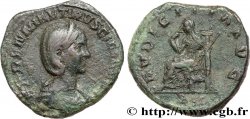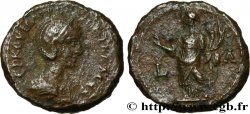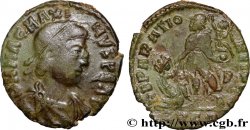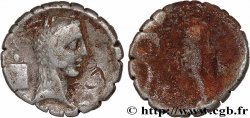bpv_672492 - HERENNIA ETRUSCILLA Tétradrachme syro-phénicien
150.00 €(Approx. 175.50$ | 130.50£)
Quantity
Add to your cart

Type : Tétradrachme syro-phénicien
Date: 249
Mint name / Town : Antioche, Syrie, Séleucie et Piérie
Metal : billon
Diameter : 26,5 mm
Orientation dies : 4 h.
Weight : 10,01 g.
Rarity : R2
Coments on the condition:
Exemplaire sur un flan ovale, bien centré des deux côtés avec les grènetis visibles à l’usure superficielle. Patine grise, légèrement granuleuse
Catalogue references :
Obverse
Obverse description : Buste drapé et diadémé d’Herennia Etruscilla à droite, vu de trois quarts en avant, posé sur un croissant lunaire (L15), une S sous le buste.
Obverse legend : ERENNIA ETROUSKILLA SEB
Obverse translation : (L’empereur césar Caius Messius Quintus Trajan Dèce auguste).
Reverse
Reverse legend : S C À L’EXERGUE.
Reverse description : Aigle debout à gauche sur une palme, les ailes déployées, tête à gauche et queue à droite, tenant une couronne feuillée dans son bec.
Reverse legend : DHMARC EX OUSIAS
Reverse translation : (Revêtu de la puissance tribunitienne / avec l’accord du Sénat d’Antioche).
Commentary
Axe des coins inhabituel. On note que les sigma sont gravés en C.
Dans la base TSP maintenue par Michel Prieur, sept exemplaires sont maintenant répertoriés pour ce type, dont en musée, un à l’ANS et deux à Doura/Yale.
Unusual corner axis. We note that the sigma are engraved in C. In the TSP database maintained by Michel Prieur, seven examples are now listed for this type, including in a museum, one at the ANS and two at Doura/Yale
Dans la base TSP maintenue par Michel Prieur, sept exemplaires sont maintenant répertoriés pour ce type, dont en musée, un à l’ANS et deux à Doura/Yale.
Unusual corner axis. We note that the sigma are engraved in C. In the TSP database maintained by Michel Prieur, seven examples are now listed for this type, including in a museum, one at the ANS and two at Doura/Yale







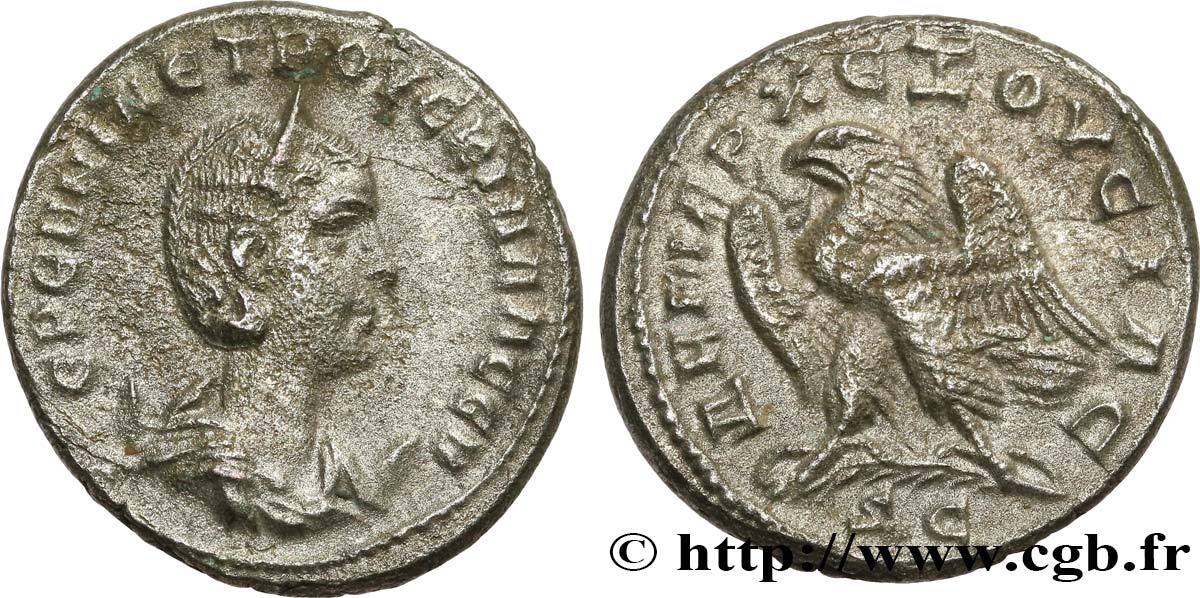
 Report a mistake
Report a mistake Print the page
Print the page Share my selection
Share my selection Ask a question
Ask a question Consign / sell
Consign / sell
 Full data
Full data

